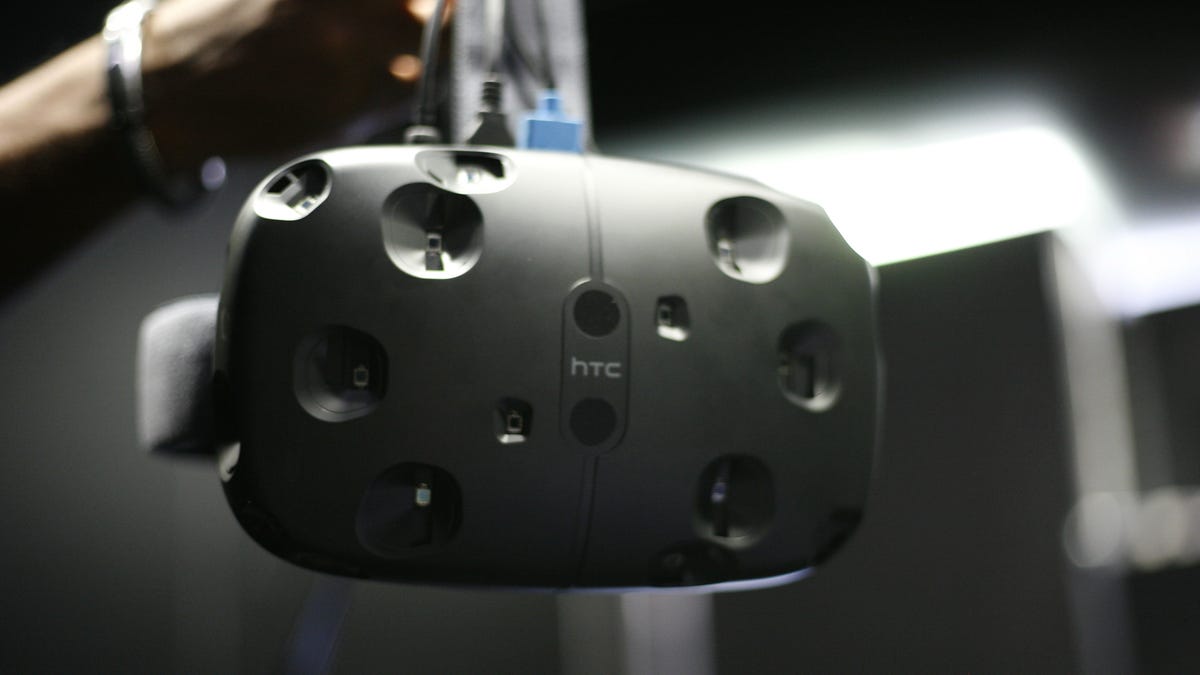HTC's Vive headset still more virtual than reality
The phone maker, which partnered with video game company Valve for its virtual reality headset, delays the device to next year. It was supposed to launch in time for the holidays.

HTC's Vive headset was developed in partnership with software maker Valve.
If you had an HTC Vive on your Christmas list, it looks like even Santa won't be able to get it to you in time.
Phone maker HTC said Tuesday it is delaying its virtual reality goggles until April 2016, more than four months later than the original plan to offer the device for sale in limited quantities this year.
"We remain committed to delivering the HTC Vive to a broader group of content creators and partners, and remain focused on delivering the very best experience possible for a consumer release," the company wrote on its website, citing speculation about the Vive's planned release this month.
The company announced the Vive in March as part of a partnership with Valve, which is known for its Half-Life video games and Steam online store.
HTC's delay represents just the latest bump in virtual reality's long and winding road from research projects to store shelves. So far, only two headsets, Google's Cardboard and Samsung's Gear VR, are being offered to consumers. Others won't be available until next year.
We still don't know the price or detailed launch dates for products like the Oculus Rift, Sony PlayStation VR or HTC Vive, all of which are focused on high-end VR games and videos.
The lack of detail hasn't stopped fans from eagerly hyping these devices, nor has it stopped a flood of developers from creating all sorts of content. Major streaming companies Hulu and Netflix work with the devices, while game makers like Microsoft, Harmonix and Sony are preparing to offer games.
Despite all this enthusiasm, Facebook CEO Mark Zuckerberg -- who pushed Facebook to buy Oculus last year -- has begun lowering expectations for how quick the uptake will be for these devices.
"This is going to grow slowly," he warned in September. "If you think about the arrival of computers or smartphones, the first units shipped did not ship tens of millions in their first year. But they proved an idea and made it real."
For now, HTC said it plans to offer 7,000 more prototypes of its device to developers ahead of next year's launch.

